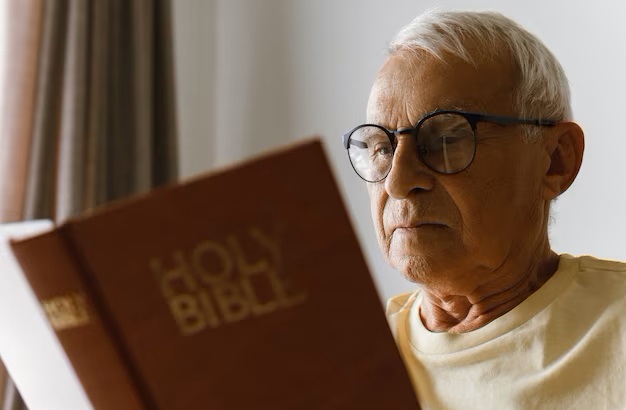“Therefore judge nothing before the time, until the Lord comes,
who will both bring to light the hidden things of darkness and reveal
the counsels of the hearts. Then each one’s praise will come from God”
(1 Corinthians 4:4).
Paraphrasing Hamlet, we could say, “To judge or not to judge, that is the question.” On the one hand, we are very quick to judge others and very slow to judge ourselves. With one stick we measure ourselves and with another rod we measure others,
“Our goal is not to be better than someone,
but to be better than we used to be” – Wayne Dyer. –
We can “judge” and evaluate our neighbor when we have examined ourselves first, when we have all the information, when we do it humbly, when we take the steps that the Bible indicates, and when what moves us is love and the purpose of restoring and helping to grow.
Try to patiently endure the weakness and defects of others, whatever they may be, because you also have many flaws, that others have to endure. If yourself cannot be the way you want to be, how can you expect others to be the way you want them to be? We want them to be perfect but we do not amend our own wretchedness – Thomas à Kempis.
According to Paul, there were three problems in Corinth with the brethren who judged the ministry.
- The time of judgement. It is an inopportune judgement, done in advance, with prejudice (“pre-judgmenet”), and generally negative. This caused them to make a hasty and misinformed judgement. The right time for judgement is at the Lord’s return.
- Judging by the wrong standards. The Corinthians conducted their assessment according to their own opinions, feelings, and prejudices. The only sure standard is the invariable “It is written” of the Word of God.
- Having the wrong motivation. For the Corinthians, motivation was not spiritual. They attacked the servants of God to impose their ideas. They promoted divisions in the church. God is the only One who can look at the heart and know our motivations, and thus judge fairly.
“Christ took humanity that He might be our Judge (John 5:22, 26-27).
No one of you has been appointed to be a judge of others.
It is all that you can do to discipline yourselves.
In the name of Christ I entreat you to heed the injunction
that He gives you never to place yourselves on the judgment seat.
From day to day this message has been sounded in my ears:
‘Come down from the judgment seat.
Come down in humility’ ”
(Counsels for the Church, p. 259).
May the Lord bless you, may He transform our hearts and fill us with humility…










